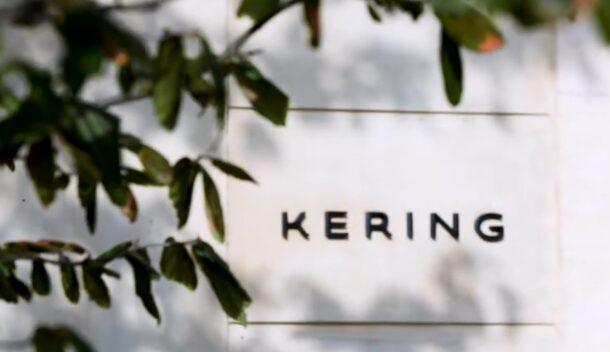Luxury fashion conglomerate Kering has unveiled a comprehensive “Water Positive Strategy” designed to reduce water-related risks across its supply chain and contribute to a net positive water impact by 2050.
The company, whose portfolio includes high-end labels such as Gucci, Saint Laurent, Bottega Veneta, and Balenciaga, aims to deliver measurable improvements in the availability and quality of freshwater in areas where its operations are most dependent on water resources.
Based in Paris, Kering has been at the forefront of sustainability efforts within the luxury goods sector. In 2024, the group became one of the first companies globally to release validated science-based targets for nature under the Science Based Targets Network (SBTN), alongside GSK and Holcim. These include a specific target focused on freshwater quantity in its direct operations and upstream supply chain. You can read more on that milestone here.
Kering’s new water initiative builds on this work, concentrating efforts on ten critical water basins identified through scientific analysis of its value chain. These areas are considered ‘hotspots’ for the business, both geologically and operationally, and are most vulnerable to water stress and pollution. In these locations, Kering plans to collaborate extensively with local stakeholders including suppliers, other industries, communities, indigenous groups, and public sector bodies.
The strategy involves several key actions. Firstly, the group will place a greater emphasis on sourcing low-impact and recycled materials that reduce strain on local water sources. It will also support suppliers in adopting technology designed to make their water use more efficient and less polluting. This includes innovations such as chrome-free tanning processes and low-impact chemical agents commonly used in leather production.
To further drive regional resilience, Kering will establish Water Resilience Labs—platforms for multi-stakeholder collaboration, knowledge-sharing, and on-the-ground implementation of water stewardship projects. These labs will bring together public and private actors in areas facing high water stress to improve water quality, accessibility, and infrastructure. The first of these will open in the Arno Basin in Tuscany later this year, a key geographic area for Kering due to its concentration of tanneries and leather suppliers.
Marie-Claire Daveu, Chief Sustainability and Institutional Affairs Officer at Kering, said that the strategy marks a shift in how companies must think about water:
“The need for responsible corporate water stewardship to stay within the planetary boundaries has never been more urgent. It is crucial that water commitments evolve from a reductions-only approach to become water-positive, regenerating and replenishing water and ecosystems associated with all business activities. Accordingly, Kering’s Water-Positive Strategy has been designed to be transformative, and we will collaborate with local stakeholders to deliver measurable water-positive outcomes to enhance social, environmental and economic resilience, and ultimately contribute to building up the availability of clean water for all.”
The announcement comes at a time when industries are under increasing pressure to align with scientific frameworks that conserve global biodiversity and natural resources. According to the UN, over 2 billion people worldwide currently live in countries experiencing high water stress, and by 2025, an estimated two-thirds of the global population could face water shortages. These challenges are exacerbated by climate change, population growth, and unsustainable water usage.
Kering’s move reflects a broader trend within the corporate world toward nature-based accountability, a concept now taking shape in frameworks like the Taskforce on Nature-related Financial Disclosures (TNFD), which aims to mirror climate-focused reporting initiatives such as the TCFD.
By designing a water strategy rooted in ecological restoration and local engagement, Kering is positioning itself among a small but growing number of luxury and retail players seeking to embed environmental stewardship across every layer of its supply chain.




